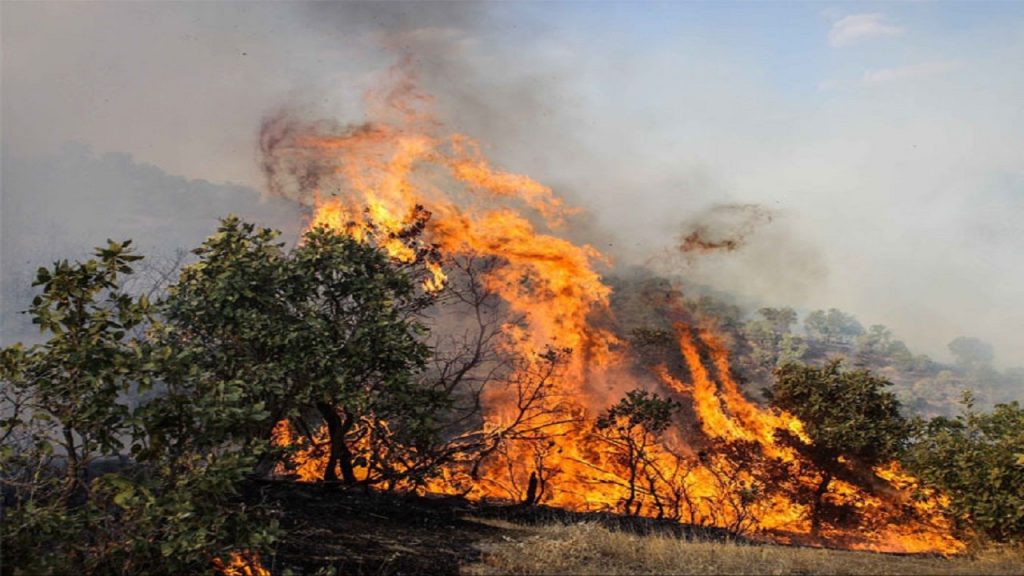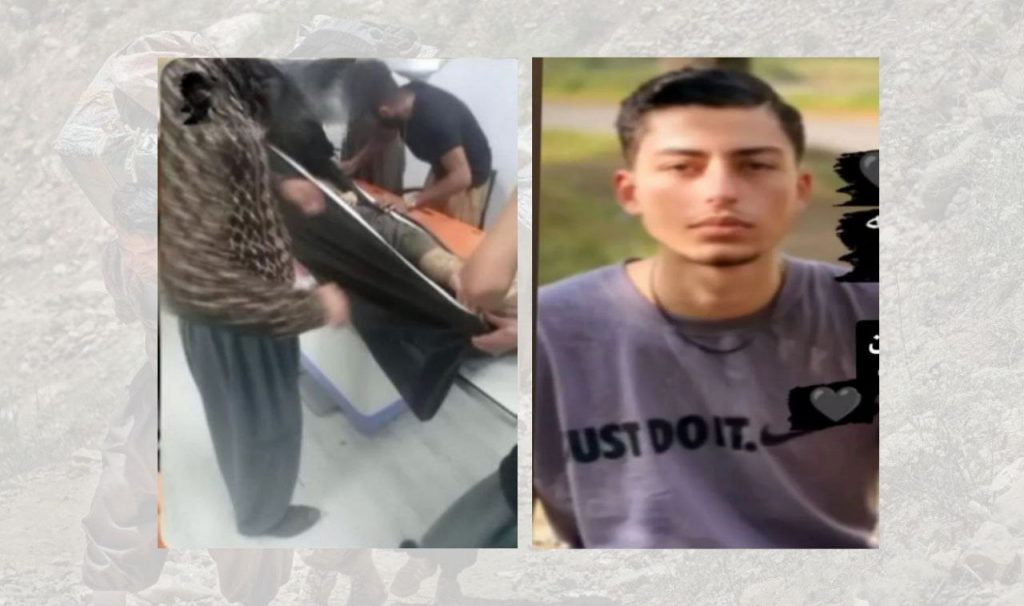
With summer approaching, the threat of wildfires looms over the Zagros forests. Over the past 45 years, the Islamic Republic has inflicted significant damage on Iran’s environment. In Kurdistan, however, this destruction is deliberate, driven by political and security motives. Many wildfires are caused by the presence of IRGC and army forces in border areas and their irresponsible shooting. The degradation of the environment due to the anti-people policies of the Islamic Republic is not limited to the forests of western Iran. Annually, 125,000 hectares of forests are destroyed across the country. Predictions suggest that if the situation continues, Iran will be devoid of forests in 50 years. This process is accelerating in Kurdistan.
Since coming to power, this regime has been systematically destroying Kurdistan’s environment. Examples include setting forests on fire under the pretext of securing repressive forces, unplanned dam construction, profit-driven or military-oriented construction, unsanitary disposal of urban waste, landmines in border areas, bombardment of mountains and pastures, looting of natural resources, excessive mining, gradual drying of lakes Urmia and Zireibar, drying up wetlands, dumping toxic waste near cities, and even polluting rivers. Constructing military roads up mountains and hills are just a few examples of the regime’s relentless efforts to damage Kurdistan’s environment.
Environmental activists estimate that over the past decade, about 4 million hectares of the total 10 million hectares of Zagros forests have been lost to fires and other factors. The lack of investment and job creation in Kurdistan has led to environmental threats, including the encouragement of logging and hunting of squirrels, foxes, wolves, bears, partridges, and other birds and animals.
Water, the most vital resource for humans and other living beings, faces a serious crisis in Kurdistan due to the regime’s policies. What used to be one of Iran and the Middle East’s most water-rich areas now suffers from routine water shortages.
The absence of appropriate technology for recycling waste and fully treating sewage leads to increased soil and water pollution, posing significant risks to humans and all other living organisms in Kurdistan.
In addition to the systematic efforts to destroy Kurdistan’s environment and pollute its soil, air, and water, the regime treats environmental activists as enemies, subjecting them to arrest, torture, imprisonment, and even killing, thus posing further challenges and dangers to the environmental movement in Kurdistan.
The destruction of this beautiful nature, home to hundreds of rare animal species, continues before the eyes of the regime’s extensive military and administrative apparatus without any effective action to stop it. The local people, with their bare hands and risking their lives, have saved as much of the forests as they could from the flames.
Understanding this disaster that threatens to destroy the environment, civil activists in Kurdistan have mobilized to defend the environment against this destruction. They have sought to raise public awareness and promote progressive culture in this regard. The formation of numerous environmental protection organizations, opposition to hunting, defending animal rights, holding educational classes on the necessity of environmental protection, tree planting, and preventing deforestation are routine activities in Kurdistan.
Volunteers clean villages and urban neighborhoods of garbage, conduct symbolic actions against smoking and burn cigarettes and hookahs in public squares, break hunting rifles and cages to release captive birds, run campaigns against hunting and animal cruelty, and collectively work to extinguish forest fires. Although the threats to Kurdistan’s environment far exceed the scope of these groups’ activities, these actions help promote progressive culture and responsible behavior towards the environment. The continued rule of the Islamic Republic poses a serious threat to the environment and the healthy living conditions of the people of Kurdistan and all of Iran.

